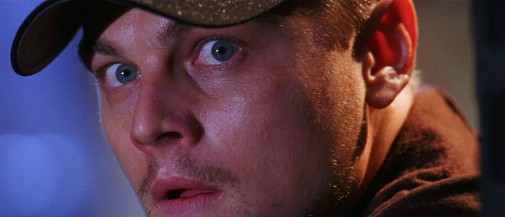
Many actors have long-lasting creative partnerships with their directors, bringing out the best in both artists. Unfortunately, when it comes to Oscar, not everyone gets recognized for these joint efforts. Many thespians don't get that golden recognition for their best work either, adding a tinge of bitterness to their triumph. Leonardo DiCaprio, Martin Scorsese's 21st-century muse, did get nominated for two of the director's pictures, 2004's The Aviator and 2013's The Wolf of Wall Street. However, I'd argue that the actor's best performance in a Scorsese flick got snubbed. In 2006, despite a lot of precursor attention, The Departed failed to secure an Oscar nod for its ill-fated protagonist…
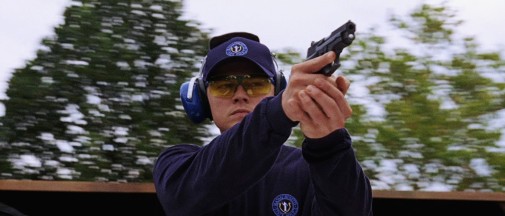
Martin Scorsese won his little golden man for remaking Andrew Lau and Alan Mak's Infernal Affairs. Transporting the byzantine plot of overlapping double-crosses and double-agents from Hong Kong to Boston, Scorsese and screenwriter William Monahan manage to make the plot even more complicated but somehow just as exciting and clear-eyed as the original. A lot of credit goes to Thelma Schoonmaker's propulsive editing, though we shouldn't underestimate the actors' part in the picture's success. The Departed's cast masterfully negotiates layers of performance within performance, articulating inner turmoil and ruthless menace. DiCaprio best of all.
He plays Billy Costigan, a young man from a troubled background who's trying to leave behind a life lived on the edges of organized crime to become a cop. Enticed both by his intelligence and familial connections, detectives investigating the criminal empire of Frank Costello make Billy a dangerous offer, proposing that he turn into an undercover agent. That's how he finds himself entering the realm of Costello, becoming one of the kingpin's trusted men while feeding information to his supervisors. In Infernal Affairs, Tony Leung took on a very different version of the character, one defined by over a decade of undercover work.
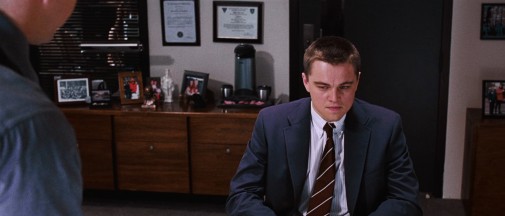
In contrast, we follow Leonardo DiCaprio's Billy's during his days at the police academy and early infiltrating efforts. Instead of finding him already burdened by years of ossified trauma, Scorsese allows us to witness the evolution from young hopes to defeated hopelessness. Fittingly, DiCaprio seems to age dramatically before our eyes. In his very first scene, the actor imbues Billy with caustic fury boiling beneath a severe façade. There's also a great need to prove himself that, combined with the star's babyface, makes Billy look like a sullen teenager.
Billy's an actor through-and-through, a man who puts on a mask and hopes he won't be caught in his deception That doesn't mean he's good at it from the start. DiCaprio slowly makes Billy opaquer, hiding his true self beneath layers of carefully curated subterfuge. Initially, his anger bleeds into vulnerable sorrow with the sort of seamless mercuriality that makes DiCaprio look so novice. However, as the story unfolds, he grows harder, his spirit becomes weary like that of a caged animal who's too tired to fight against prison bars that won't budge no matter what he does.
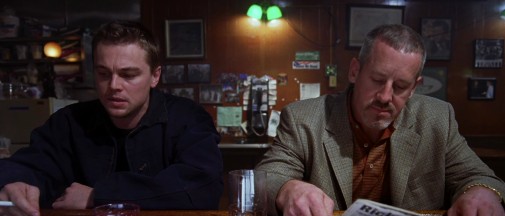
It's maybe the most internal performance the actor ever gave. One spectacular moment sees him center a violent scene on one instant of pensiveness, for example. Before exploding at the bar and breaking a glass over another patron's head, there's a pause. It's not the hesitation of a guy seething in anger, but the nervous consideration of an improv actor thinking about how he'll approach the scene. It's a dangerous game to play, a knife's edge of deliberate artifice that can easily result in an unconvincing experience for the spectator. Thankfully, both the actor and his director know how to make this approach a winning one.
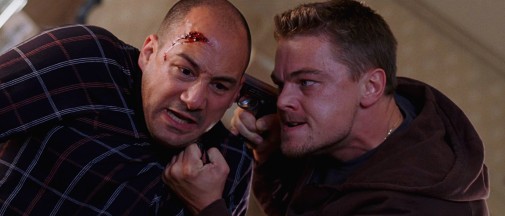
Part of it is the vocal work in Billy's act. DiCaprio isn't like Streep in that he's never been famous for his ability with accents. Still, the way he rolls the Boston pronunciation in his mouth, modulating it depending on the setting, speaks of great discipline and an understanding of the parameters of fakery intrinsic to Billy's persona. Another element is the body language, which does a lot to subtly exteriorize the toll the investigation has on the undercover cop. Billy says he doesn't sleep, doesn't rest, that he suffers from panic attacks. We believe him without a doubt. It's all there in his walk. As The Departed unfolds, his frame seems to get heavier, each step taking a bit more energy.
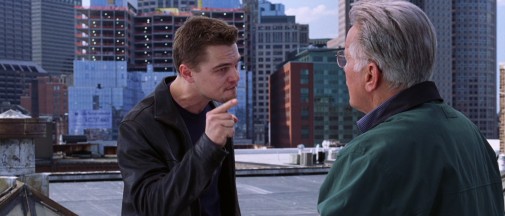
On one hand, his fidgety nerves dissipate with newfound confidence. On the other, he's imploding, his body's shutting down, his emotions feeling increasingly ragged. A lot of DiCaprio's bigger performances tend to have a touch of strain to them. As Billy, that fault becomes a feature, a weaponized tool on the actor's arsenal, feverish intensity serving as a counterpoint to the voice work and physical exhaustion. Like a gun, all the parts of Billy are perfectly fitted and work together to make the machine fire. However, the kill shot isn't Billy's successful spy-work but his searing doom. The Departed is a tragedy as much as it is a crime thriller, and DiCaprio plays it accordingly.
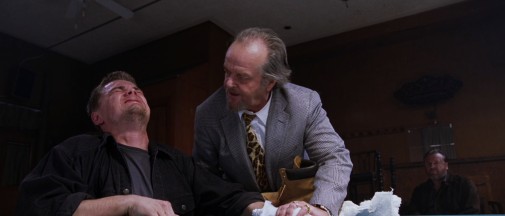
I love how he's scared all the time, how Billy always acts like he knows things will end badly for him. His scenes with Nicholson's Costello are dangerous dances that illustrate that fear perfectly. One can smell the sweaty tension irradiating from the screen. Like two cockerels showing off to their adversary, they put on a spectacle of aggression, but their takes on that are starkly different. Nicholson's all self-amused devilishness, while DiCaprio is a lamb pretending to be a wolf while the sounds of incoming slaughter are ringing in his ears. That primal fear never really goes away, neither does the nausea or the despair at the sight of death.
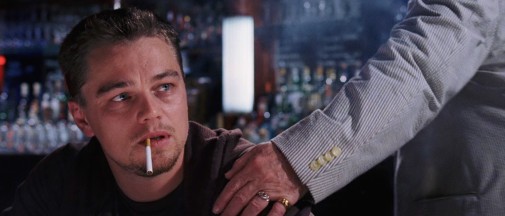
Much more could be written about DiCaprio's scenes with Nicholson. The fatherly-filial undertones to the dynamic are especially juicy. Regardless, I'd like to end this analysis by shining a light on the saddest relationship that the actor gets to flesh out in the course of the movie.
Upon Billy's meetings with his therapist played by Vera Farmiga, DiCaprio talks to her like a lost person in desperate need of someone to show him a path. He doesn't even seem to want salvation, just a way forward, direction, anything. There's a sweetness to Billy, a fragile tenderness that becomes evident in these interactions. It lives in the little details, like when he hangs her childhood photo instead of shoveling in a box, holding the framed photo as if it's a precious treasure instead of something to hide. The gesture screams of deep longing, a desire for love and peace, for a normal life, whatever that might mean. For a life that both Billy, DiCaprio, and we know he'll never get.
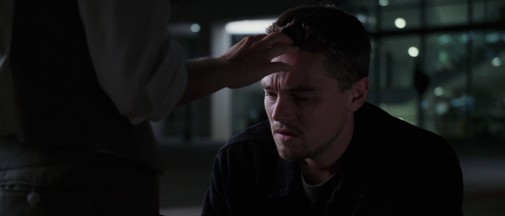
Despite delivering a standout performance in a Best Picture champion, DiCaprio was nominated for a different movie in 2006. Blood Diamond won him a Best Actor nod despite not performing as well with AMPAS as the Scorsese flick. What made that turn tower over his work in The Departed is likely a case of vote splitting across categories. At the Globes and the Critics Choice Awards, DiCaprio got two Best Actor nominations while the BAFTAs singled out his work in the gangster movie and ignored the other picture altogether. SAG, however, nominated DiCaprio as a lead for Blood Diamond and as a supporting actor for The Departed.
With Academy members throwing votes at both categories, it's no wonder DiCaprio got more votes for Blood Diamond and ended up nominated for that lesser effort. One must also understand that, if considered a supporting actor, he had to contend with a ton of internal competition from The Departed's cast. Mark Wahlberg got the sole Oscar nomination for Best Supporting Actor but DiCaprio, Jack Nicholson, and Alec Baldwin also received plenty of attention from precursors.
The Best Actor lineup of the Oscars was composed by DiCaprio in Blood Diamond, Ryan Gosling in Half Nelson, Peter O'Toole in Venus, Will Smith in The Pursuit of Happyness, and, the winner, Forest Whitaker in The Last King of Scotland. As for the Best Supporting Actor category, the nominees were Alan Arkin who won for Little Miss Sunshine, Jackie Earle Haley in Little Children, Djimon Hounsou in Blood Diamond, Eddie Murphy in Dreamgirls, and Mark Wahlberg in The Departed. Would you have substituted any of these men for DiCaprio in The Departed? I'd have nominated him for this instead of Blood Diamond.
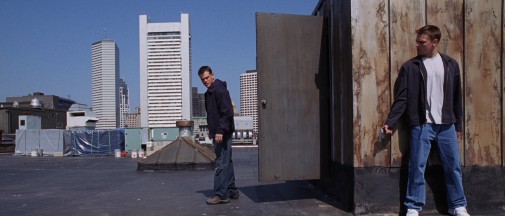
The Departed is now streaming on Netflix. You can also rent it from most services.